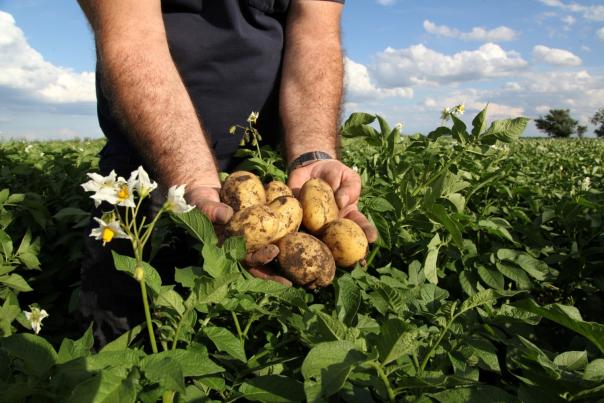
Moving Beyond Averages: a smarter approach to food environmental reporting
Understanding the environmental impact of food has come a long way. Proxy or average data has helped caterers measure menu carbon footprints and make informed ingredient choices. But to drive on-the-ground financial, social, and environmental change, we need to go beyond averages and enable transparency across the entire supply chain.
Different on-farm approaches have a significant impact on climate, biodiversity, water, and soil health. However, collecting farm-level data can be complex, time-consuming and expensive. As a result, proxy data has played an important role in guiding menu choices for caterers. That said, this type of data can sometimes lack the nuance to reflect the real differences in farming practices.
Take frozen spinach, for example. Much of its carbon footprint depends on energy efficiency in freezing and storage. One bag of frozen spinach may have a significantly different carbon footprint to another, yet average data treats them the same. Similarly, sustainability assessments often focus heavily on carbon emissions, overlooking crucial factors like biodiversity, water usage, and soil health.
The Buying Better Food and Drink framework, developed by Crown Commercial Service and delivered by leading group purchasing organisation Entegra uses AgileChain technology to bring greater transparency to the food supply chain through a phased, practical approach.
Fully compliant with the Government Buying Standards for Food and Catering (GBSF) and aligned with evolving public procurement regulations, the framework intends to equip public sector buyers with the robust data, tools, and expert guidance they need to make more sustainable, informed procurement.
Proxy Data and Farm-Level Data: complementary tools for informed procurement
For many caterers, proxy carbon data has been instrumental in providing high-level insights into the environmental impact of their menus. These average-based datasets help buyers compare food categories, set reduction targets, and adapt menus accordingly - and they will continue to play a valuable role in strategic planning.
But while proxy data offers convenience and consistency, it has its limits. It cannot capture the full picture of how food is produced, particularly when it comes to the difference between intensive and regenerative farming methods. This means producers using nature-friendly approaches can be overlooked or unfairly grouped with less sustainable operations.
That’s why as the Buying Better Food framework develops, it aims to make farm-level data more readily available, to provide deeper insight into the true environmental impact of specific food products. For buyers, this means going beyond generalised estimates to make procurement choices that reflect the realities of their supply chains. For SME producers, it opens the door to sharing their sustainability credentials and supplying into a market that’s actively seeking to make better food choices.
Luke Dale-Harris from Farm Wilder sees the potential for farm-level data to transform public sector procurement. He said: "Farm Wilder’s farmers have supplied small amounts into the public sector, but we want to do much more. Sustainable, nature-friendly farming shouldn’t be limited to premium markets. We need schools, hospitals, and universities to be part of this transition."
Putting Buyers at the Heart of Food System Transformation
Through the Buying Better Food and Drink framework, public sector buyers can:
- Support regenerative farming, helping improve soil health, protect water resources, and enhance biodiversity.
- Shorten supply chains, reducing dependency on global imports and increasing food security.
- Boost social value by enabling SME participation and strengthening economic resilience.
As Seb Powell, an advocate for regenerative farming, explained: "Big, bushy hedgerows don’t just capture carbon - they support wildlife, provide food, and improve soil health. A procurement framework that recognises these benefits can help reward farmers who are working with nature rather than against it."
The Buying Better Food framework, delivered by Entegra, is paving the way towards greater supply chain transparency. By integrating AgileChain technology from Equilibrium Markets, the framework will provide deeper, data-driven insights into key on-farm metrics - including soil health, water use, biodiversity, and carbon emissions.
Crucially, this data will be made accessible and actionable - empowering public sector buyers to make informed decisions that go beyond reducing carbon intensity. It’s about building more resilient, sustainable food systems that deliver environmental regeneration, drive social value, and support long-term impact through every purchase.
The Buying Better Food framework is free to join for both buyers and food producers. Learn more about the Buying Better Food framework and connect with Entegra.